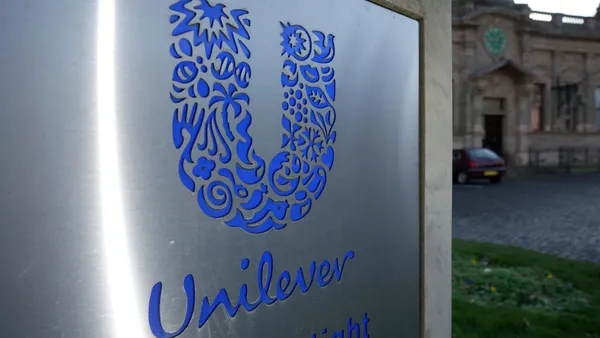In recent years, there has been a noticeable shift in the way brands market to women, from the attainment of perfection to a more supportive “love yourself” vibe. Some in the industry have coined the term “fempowerment” to describe the most recent string of female-power focused marketing.
While some brands seem to be genuinely interested in making a social statement, there are also a lot that have jumped on board due to the success of the movement. We can blame a bit of this on Dove’s ultra-viral 2013 hit, “Sketches.” The video depicts several women who are asked to describe themselves to a professional sketch artist and has been claimed by some to be the most viral ad in history, having amassed well over 150 million views in less than a month's time.
What brand wouldn't create its own fempowerment campaign on the heels of that kind of success? These six brands have seen successes of their own.
1. Pantene
Like Dove, Pantene has seen significant success with its fempowerment marketing. Its series of #ShineStrong spots utilize the common message of bringing attention to gender inequality and encouraging women to be strong.
The first and most successful spot to date is a video titled “Labels” that focuses on the different language used to describe men and women in similar situations. The spot has gathered well over 46 million views. A follow-up video, “Sorry Not Sorry,” encourages women to stop unnecessarily apologizing and already has over three million views.
2. Always
Procter & Gamble feminine hygiene brand Always is a recent entrant to the fempowerment game. Last month, it released the video spot “#LikeAGirl,” which addresses the derogatory way in which guys accuse each other of doing something “like a girl.” Adults and children are both asked to perform several actions “like a girl” and it proves that the phrase has negative connotations.
In just a few short weeks, the #LikeAGirl video has already hit over 21 million YouTube views. The common term seems to have resonated with a lot of people — probably because it’s a derogatory phrase that is still used casually without much thought.
3. Kellogg
Kellogg certainly isn’t new to presenting positive body images in its ads. In 2008, the food brand put out the “Resolution” spot, featuring men saying negative things about their bodies that are more often heard from women’s mouths. It brought attention to how critical women can be of their bodies.
At the end of 2013, Kellogg tackled body image again — and kept the theme of negative language alive — with its spot “Shhh Down Fat Talk.” In the video, women walk into a retail clothing store that is plastered with negative fat talk on signs and tags. The women are shocked, but realize that they say those same words to themselves. The idea that women should “shhh” their negative body talk has garnered the video over a million YouTube views.
4. Mercy Academy
It’s not often that a local campaign for an all-girl prep school will be a viral hit, but that’s exactly what happened to Mercy Academy in Louisville, KY. The high school decided to run a campaign where telling girls “You’re not a princess” is a good thing.
The idea was to rid girls of the notion that they would need a prince to come rescue them. Instead, the campaign highlighted how the school could help each girl write her own unique story without the help of anyone else. The video for the local high school — some accompanying print ads — has received attention across the country.
5. HelloFlo
For many years, pre-pubescent girls were forced to wonder what their first periods would be like. Advertisements showing blooming flowers and women on horseback didn’t offer much to prepare girls for the reality of their menstrual cycle. Much worse, it shamed many into thinking a natural body occurrence was too shameful to talk about candidly.
That’s what has been so refreshing about monthly care package subscription service HelloFlo’s video campaign. In particular, the spot titled “First Moon Party” has caught on with viewers, leading to over 24 million views so far on YouTube. The spot is realistic about what happens during a period, but also puts a humorous twist on a tween’s embarrassment of her parents. It's a must-see for anyone who grew up with twirling dresses and blue liquid on TV ads.
6. GoldieBlox
While the premise of toy company GoldieBlox is to inspire girls to be empowered, inventive, and creative, the brand gets an inclusion on the list because it had such a perfect ad during this year's Super Bowl – one of the most historically sexist ad events of the year.
In the Super Bowl commercial, young girls sing a parody of a Motley Crue song, with the line “More than pink, pink, pink, we want to think.” At the end, it shows a rocket the girls have constructed with pink toys marketed towards girls. The metaphor, of course, is that the girls are wanting to literally blast off from gender stereotypes and be acknowledged for their brains.
Would you like to see more marketing industry news and information like this in your inbox on a daily basis? Subscribe to our Marketing Dive email newsletter! You may also want to check out Marketing Dive's look at 5 marketing stunts gone wrong.












